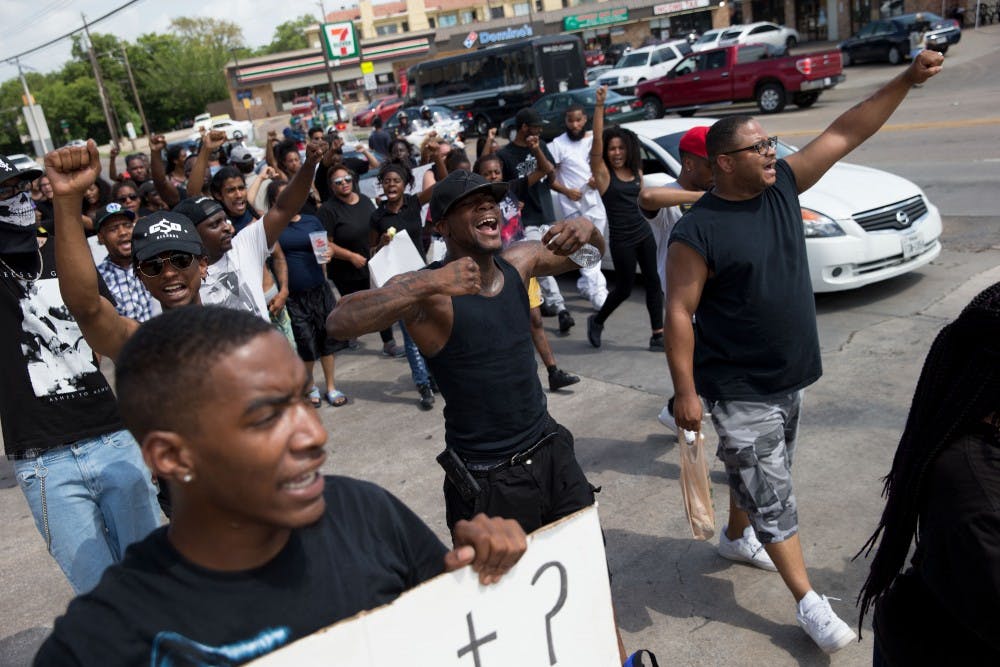When I was a junior in high school, it was customary in my AP United States history class to discuss the news of the world every morning before our lectures began.
Mass shootings, suicides, extremist uprisings, war and ugly political battles dominated the news and therefore dominated our discussions. Not much has changed since then, which makes what my teacher once said to my class all the more relevant.
He said that all great nations have their inspiring rises and chaotic falls. Nations that at the time appeared immortal couldn’t escape the impassionate hands of fate. The Ottomans, the Romans and the Mongols couldn’t flee from it. He said perhaps the Americans someday might join them.
It seems our time might be right around the corner with the number of mass shootings in the U.S. and the dismal and dangerous relationship between our police force and people of color, particularly black men and women.
I’m not denying the fact that there are more white people who are killed in the U.S. than black people. As of Sunday, more than 1,500 people have been shot and killed by police officers, 732 being white and 381 being black.
However, it is essential to remember there are far fewer black Americans than there are white Americans. After doing all the math, you’ll find that black people are actually two and a half times more likely to be shot and killed by police than white people.
Make no doubt about it – there is definitely a race problem existing between a certain percentage of police officers and black people in our country. Movements like Black Lives Matters have been trying to combat against this racism.
However, as President Obama said in a press conference last Thursday, this movement is not to diminish the importance of others’ lives either. Blue lives, brown lives, white lives, women’s lives and all other lives matter equally.
Black Lives Matter is merely trying to address a grave issue facing our justice system today and should be treated as such.
Countless celebrities have pledged their support for the movement as well, such as John Legend, Matt McGorry and Kendrick Lamar. Even the late Prince proudly stood behind the movement.
Perhaps the most significant supporter would be Beyoncé. Of course, there was her controversial Black-Panthers-esque performance at the Super Bowl this year, but she has had less theatrical ways of speaking out.
Following the murders of Alton Sterling and Philando Castile, two black men who were shot and killed by police last week, Beyoncé posted a statement on her website demanding justice against racism in the world.
“This is a human fight,” she said. “No matter your race, gender or sexual orientation. This is a fight for anyone who feels marginalized, who is struggling for freedom and human rights.”
These anti-violence ideals are not exclusive to black people. After the assassinations against five policemen in Dallas, Texas, last Thursday, she penned another letter on Instagram in condolence to the victims’ families, as well as clarify you can’t find peace in hate.
“No violence will create peace,” Beyoncé said. “Every human being has the right to gather in peaceful protest without suffering more unnecessary violence."
Beyoncé isn’t the only one fighting either. Who can forget about Samuel L. Jackson’s “I Can’t Breathe” song challenge in response to the death of Eric Garner and many other unarmed black men?
Snoop Dogg and the Game led a peaceful march with protesters Friday outside the Los Angeles Police Department headquarters.
The two rappers also addressed the new officers recruited into LAPD. Dogg pointed out that the point of the conference "was not to bash the police, but to get some communication."
And honestly, that’s the proper way of going about it – not Civil War part two, just a decent yet stern conversation on the current relationship between police officers and black people today.
Some of the greatest and smartest revolutions were completed this way. What was good enough for Mahatma Gandhi, Nelson Mandela and Martin Luther King, Jr. should be good for us as well.
afaulds@indiana.edu | a_faulds9615



